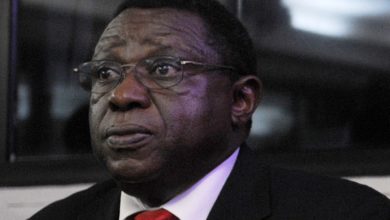In a Historic First, Israel’s Prime Minister Meets the UAE’s Crown Prince for Talks on Iran

Israeli Prime Minister Naftali Bennett is headed to Abu Dhabi on a historic visit, with talks on Iran’s nuclear program and its impact on the Middle East expected to top the agenda.
Bennett left Israel on Sunday to become the first Israeli prime Minister to visit the United Arab Emirates. He is to meet on Monday with the UAE’s de facto leader, Sheikh Mohammed Bin Zayed Al Nahyan, the crown prince of Abu Dhabi.
Although there have been mutual recriminations, negotiations between Iran and world powers to revive an agreement from 2015 that lifted economic sanctions against the Islamic Republic in return for curbs on Iran’s nuclear program made no progress.
[time-brightcove not-tgx=”true”]
While a shared concern over Iran’s ability to destabilize the world’s top oil-exporting region pushed the UAE and Israel into a landmark deal to establish diplomatic ties last year, they’ve differed on their approach to Iran’s ramped-up enrichment of nuclear material and brinkmanship since the Trump administration pulled out of the nuclear agreement in 2018.
Bennett has continued to echo the tough line of Benjamin Netanyahu who opposed any Iranian concessions and lobbied President Donald Trump for an end to the nuclear deal.
Israel claims that Iran’s nuclear ambitions would be a serious threat to Israel. It also believes that Iran could finance militias in the region to threaten Israel if sanctions are lifted. Officials from the government suggested that Israel might strike Iranian facilities if diplomacy fails. Iran claims it does not seek to create nuclear weapons.
To ease tensions, officials in the UAE have taken an alternative approach. They are now visiting regional capitals to offer investment opportunities and large trade. Sheikh Tahnoon bin Zayed, the UAE’s national security adviser and the crown prince’s brother, met with Iranian President Ebrahim Raisi last week to repair a historically close relationship that in recent years has soured.
While the approaches “are divergent, they can be complementary,” said Mohammed Baharoon, director general of the Dubai-based B’huth think tank.
Israel’s alleged strikes on Iranian nuclear sites have delayed the program but also given the Islamic Republic time to modernize its capabilities, affording Tehran more bargaining power in negotiations with the U.S. and Europe, he said.
Meanwhile “Abu Dhabi can provide a controlled and contained ease of sanctions, allowing Iran to engage in the Vienna talks without conditioning the full lift off of sanctions.”





